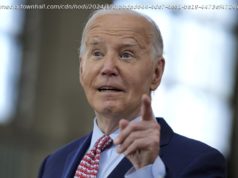President Xi Jinping’s rejection of the U. S.-China trade deal negotiated by his envoy, Liu He, led to its failure last week. Some in…
President Xi Jinping’s rejection of the U. S.-China trade deal negotiated by his envoy, Liu He, led to its failure last week. Some in China described Xi’s last-minute reneging on the deal as “huiqi (悔棋),” a metaphorical reference to a chess player who regrets a legal move he made and insists on retracting it.
Regardless of what move Xi intended to make, the result was not what anyone wanted — the imposition of tariffs of up to 25 percent on an estimated $200 billion in Chinese imports. While both sides agree to continue to talk, the Trump administration is considering raising tariffs on all other Chinese imports.
The deeper issue is why Xi did what he did. Both Liu He and the official voice of the Chinese Communist Party (CCP), People’s Daily, cited three issues to explain Xi’s rejection of the deal: first, the U. S. wanted to keep some tariffs in place, and refused to abolish all of them; second, the U. S. demanded that China purchase unreasonable amounts of its products; and third, the text in the draft agreement was viewed by China as “unbalanced,” and harmful to China’s sovereignty.
The first and second issues are not new. Both sides have been discussing them from the beginning. The third point is the key needed to decipher China’s intention. During the negotiation, the United States requested that China put a mechanism in place to allow Washington to verify Beijing’s promises to remove its unfair trade practices. Because Communist China rarely keeps its promises, the U. S. government demanded the Chinese regime modify its laws to implement specific measures to prevent unfair trade practices, such as the theft of U. S. intellectual property and trade secrets.
Again, this is nothing new because the U. S. side has insisted from the beginning on monitoring and verifying the implementation of the agreement to ensure China keeps its promises.






